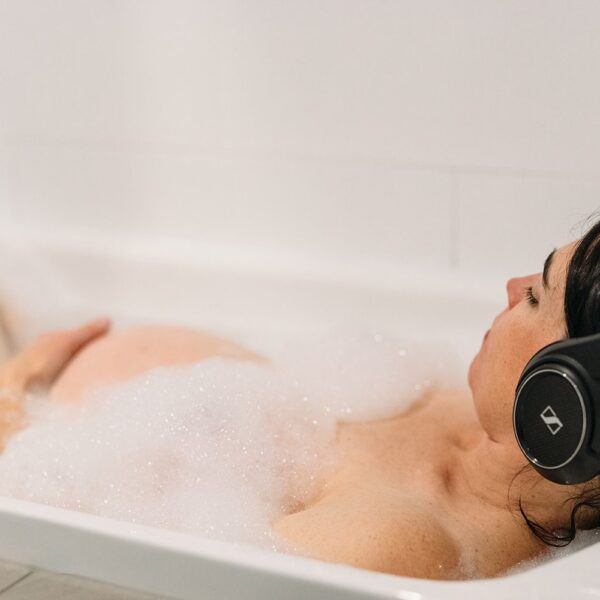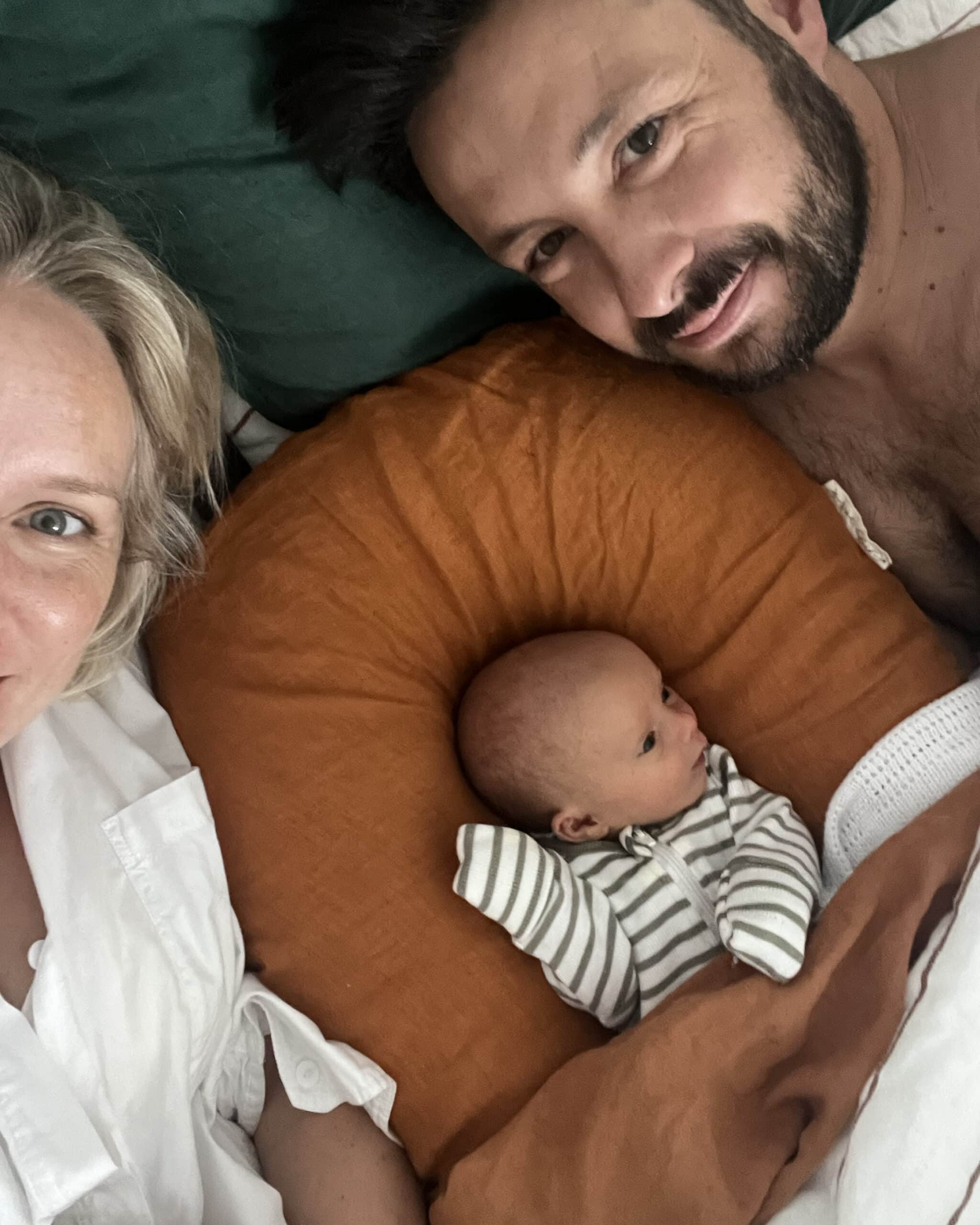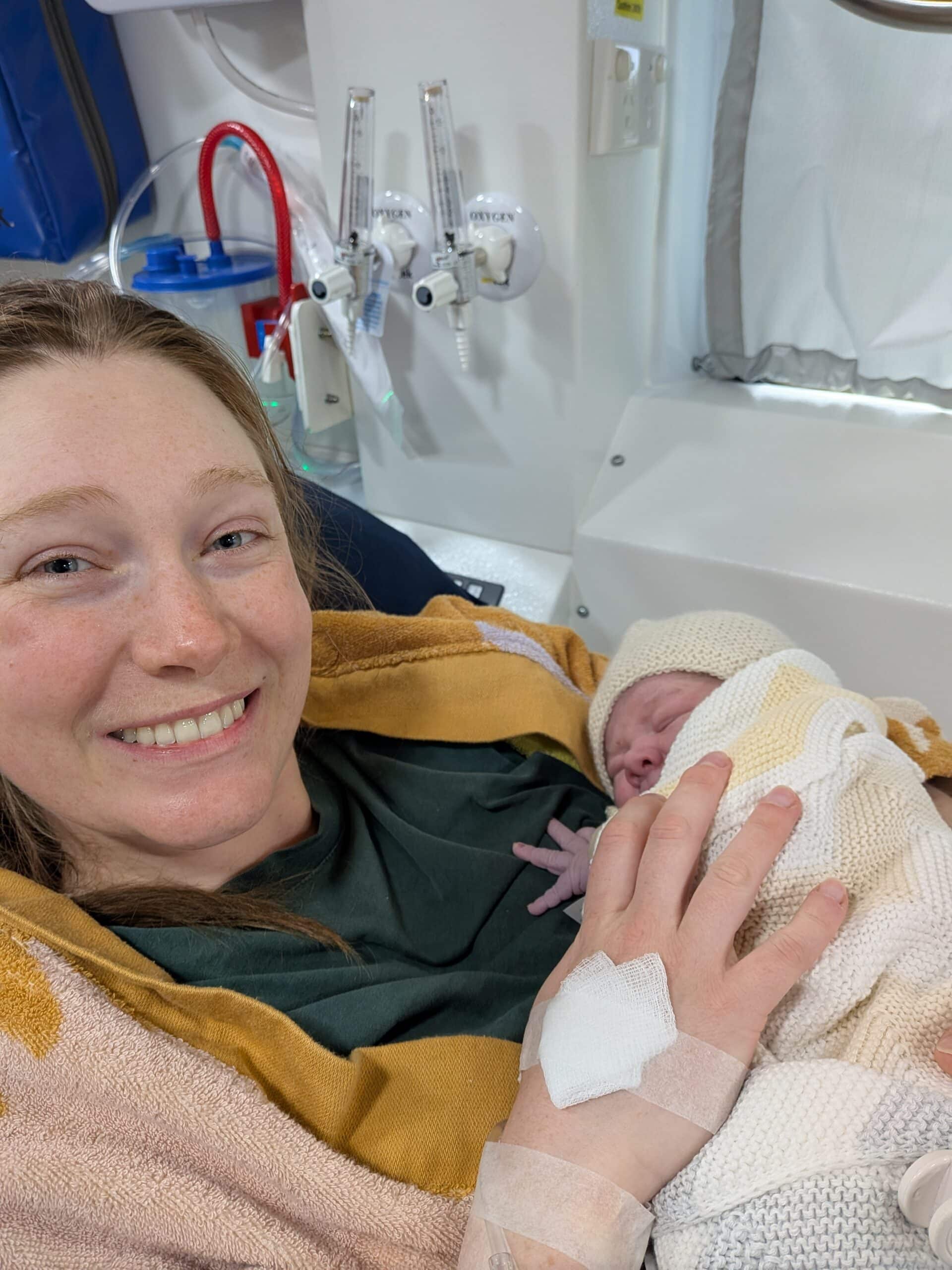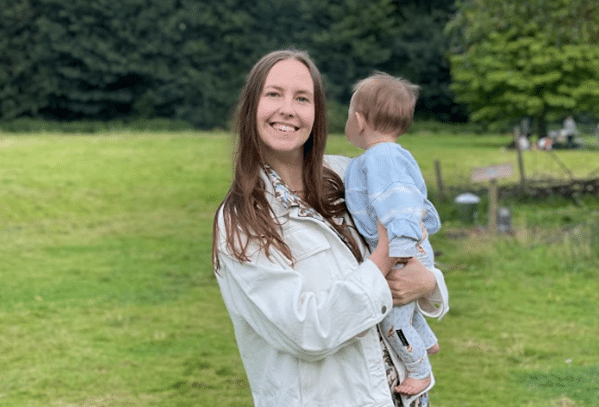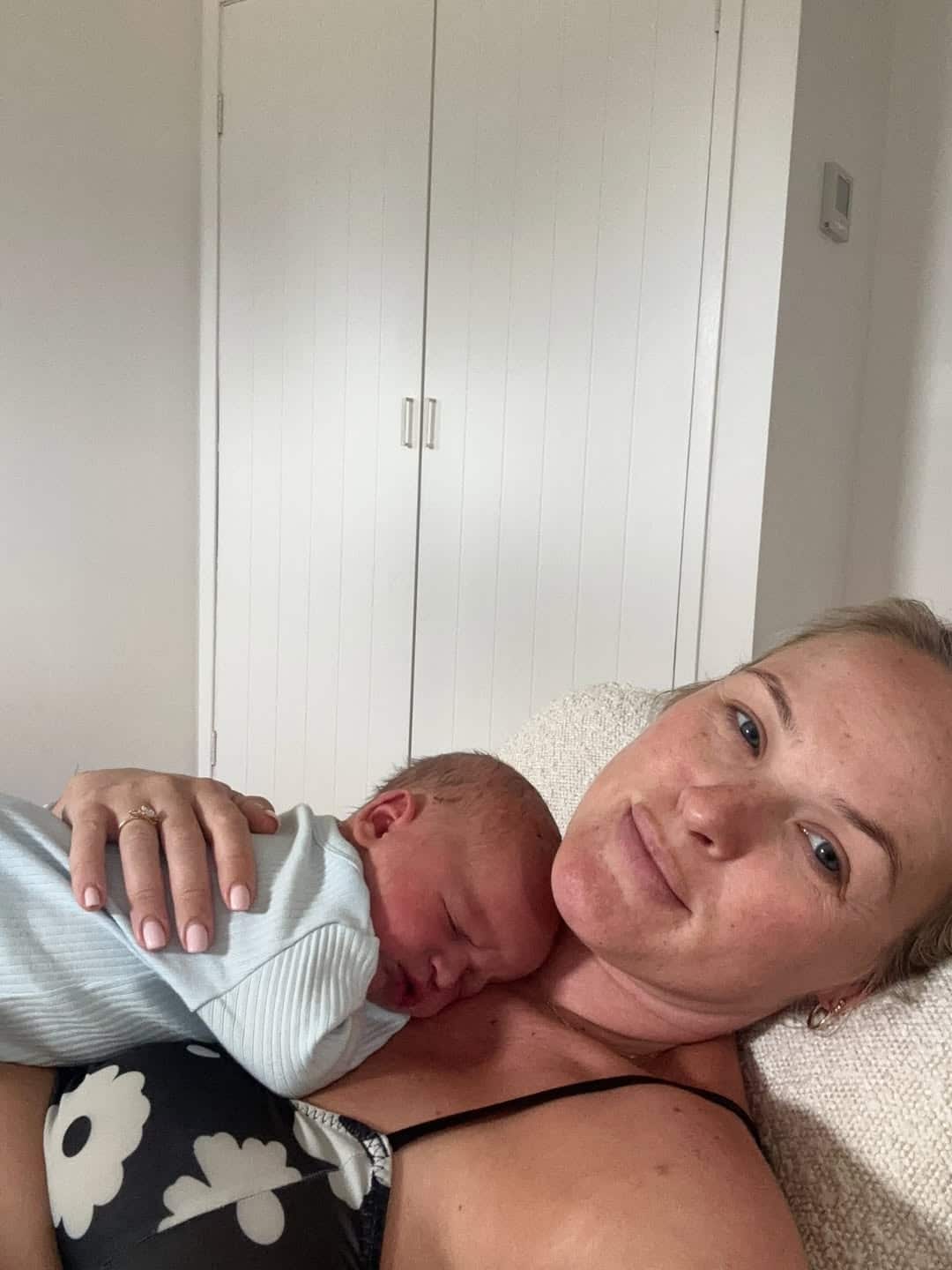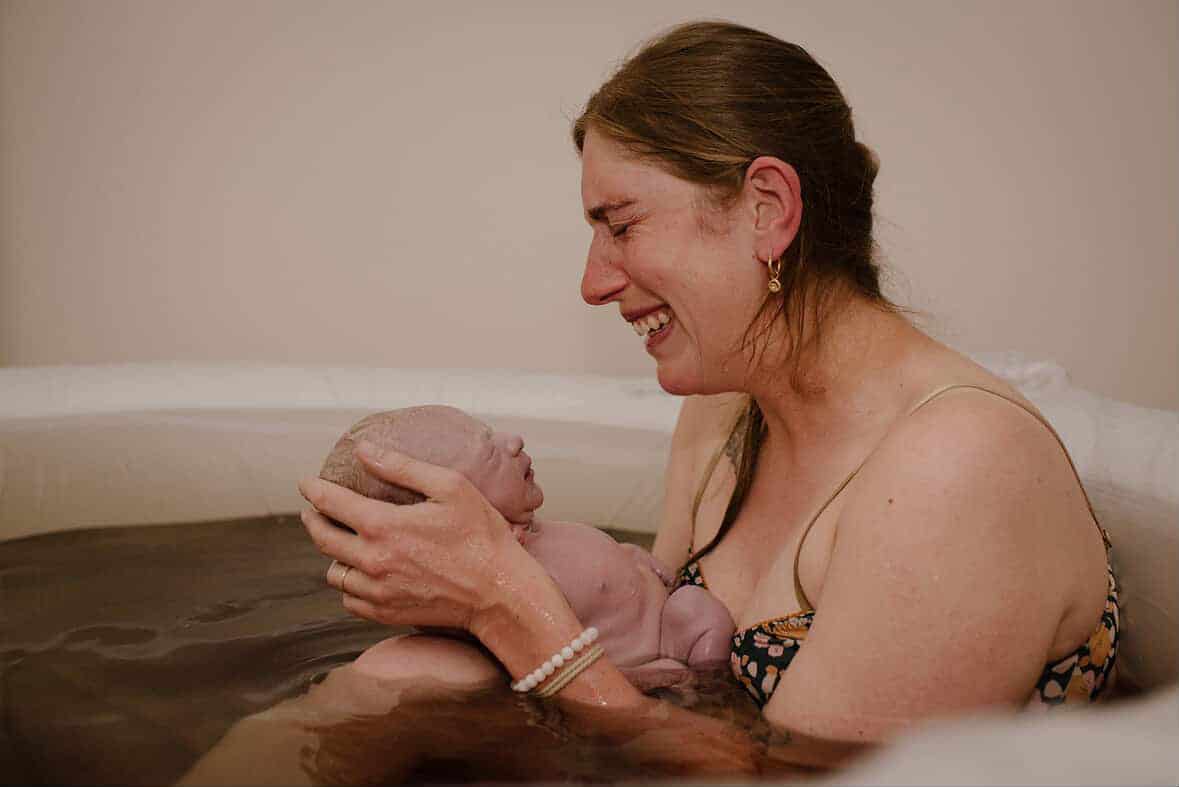Podcasts Eliza | Postpartum – two babies, disabled parent, postpartum, medical stigma, disability advocate
EPISODE 485
Eliza | Postpartum – two babies, disabled parent, postpartum, medical stigma, disability advocate
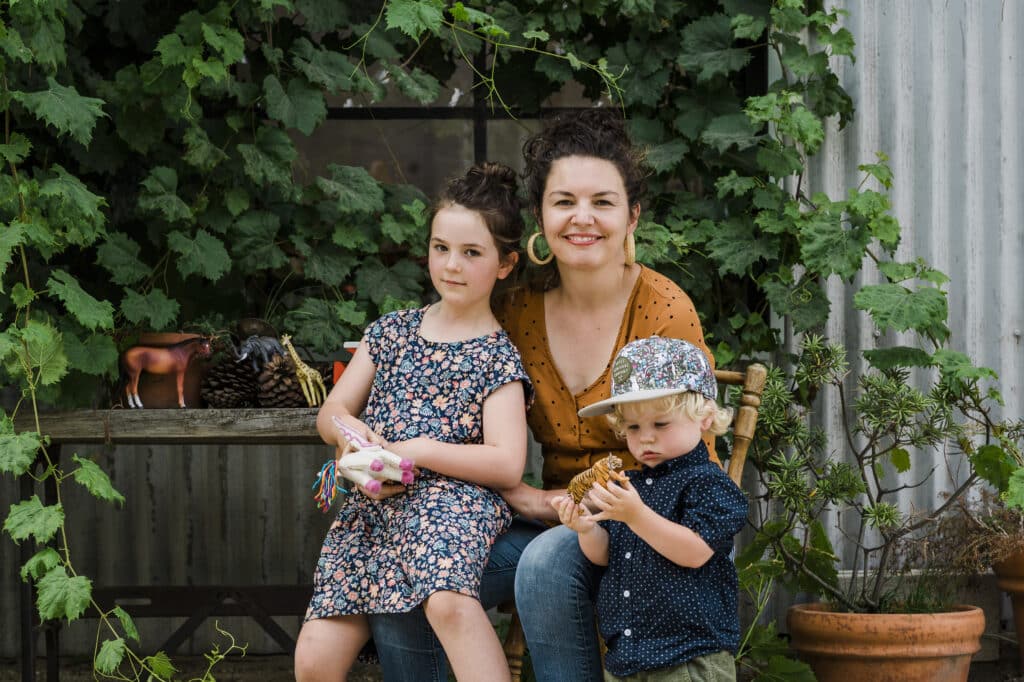
“I have a condition called charcot marie tooth and it’s a neurological condition that affects my nervous system. It means that some of the messages don’t get sent to parts of my body. I walk with a different gait, I fall over often, it affects my internal organs, my hands, I also have a very hard time walking up stairs; I usually have to crawl. My disability causes muscle wastage over time; it’s a progressive illness.
“There’s a fifty percent chance of my children inheriting my condition. Whenever I talked about having a child before I became a mother – with friends or in the medical space – it was almost seen as something I shouldn’t consider; it was definitely stigmatised. I always wanted to have children, I knew deep own that I wanted them to be a part of my life. I’m not going to lie, I was worried and I still am to be honest, we’re not living in a world that’s built for people with disability; that’s predominantly the biggest barrier for me. I’ve faced so much stigma and people staring and even know, often a group of men will have a laugh. It’s not easy to have a disability but I am hopeful that we’re living in a world that’s becoming more inclusive.
“You can’t ever know if your child will have a disability. It’s the one group you can join at any point in your life whether that be a condition you acquire or an accident or old age. I didn’t want to live in fear and I wanted to have a family. I knew I’d be a great mum.
“With my first daughter, I didn’t think ahead much and that played out in me not giving myself time to recover. I felt like I needed to prove myself; that I could do it. A few days after I’d given birth I went for a walk and fell over while pushing the pram and the pram went up in the air. Luckily I’d strapped my daughter in completely and thankfully nothing happened but it gave me a freight. I knew I needed to do things different from then on. I was so cautious and did everything with such care and thought things through a lot more. I really took things step by step and because of that, we did so well.
“With my son, Archie, I went a bit further and bought a modified baby bath because with Isabelle, I didn’t feel confident to bathe her – that was my husband’s job. Safety is always my priority but I also try to be fun with it so I can see myself as a thriving parent. My four year old is just started to figure out that I have a disability. My daughter realised at a younger age and she asked me: “Why do you walk like a penguin?”.
“Growing up I never used the word ‘disability’ – I just said I had a leg problem. I didn’t have any disability representation growing up; there’s a part of me that wishes I was growing up now because we’re seeing so many first-person, authentic stories. It’s been a huge shift personally that I don’t see myself as a problem and it’s been a huge weight off my shoulders. Now if I’m going to a playdate or a friend’s house I just say – I’ve got a disability and do you have stairs up in your house?’ I no longer see myself as a problem. I think having kids was a huge catalyst for that because you realise you’re not as important as you think you are. You want to model authenticity and being yourself because you want your kids to be themselves.
“When I decided to be a parent, there was discrimination. I felt really vulnerable when I searched for parents with disabilities and what I found were tragic stories. There was a scholarship at the ABC so I put it to them and it became a series and then a book and now the book has reached an international audience which is really exciting. There’s stories from parents who are deaf, blind, autistic, have chronic illness, physical disability – there’s a spectrum of experiences in the anthology. What I wanted to achieve is changing the stigma that exists in the medical space but I wanted to write it for people who are considering parenthood but are told by their medical professionals that they shouldn’t be.
“There’s a connection because of the stigma we’ve faced. It’s especially so for deaf parents who are congratulated by health professionals when their child isn’t deaf, or blind parents who aren’t given a tour of the hospital ward so they don’t know where the toilets are. People are often not thinking about how to treat people with disabilities. Australia is actually quite behind in the medical space and disability training. Parents with intellectual disability in the US don’t face as much discrimination as they do here in Australia where child protection is called before they’ve been given a chance or the support they need to parent. It’s my passion to champion for change and I could do a lot more but I’ve created these resources. I do a lot of speaking engagements with training health professionals, but I haven’t reached high-policy change.
“There were lots of tips and tricks that parents shared with me that I’d never thought of and there’s a lot of tech that people use, especially if they’re deaf or blind. I completely planned a five year gap between children – it was very purposeful. We all know what toddlers are like and there’s no chance I could have managed a toddler and a baby. My daughter loves to help but a lot of parents with disabilities are concerned about being a burden – they don’t want their children to be their carers or interpreters.
“The Disabled Parenting Project is an online community that has over 8000 members and new parents will come seeking advice. Parents may have a chronic illness, disability or autism and they’ll find advice for their conditional disability.
“I have a unique perspective on IVF in that I have a brother with downs syndrome. My parents didn’t know they were having a baby with down’s syndrome – this was in the early eighties when stigma was rife – and the nurses persuaded them to adopt him out. I was told I had a brother when I was 16 and I found him and have a relationship with him. It made me want to test if my babies had down’s syndrome not because I wouldn’t have changed things but because I wanted the knowledge and the ability to process it. A lot of my friends talk about genetic testing and I find it really quite confronting. To me it’s saying that you want a child that’s non-disabled…even the language around a ‘healthy baby’ is quite ableist. It’s a tricky conversation to have but everyone has a right to choose. I see what disability can bring to people’s lives and I wouldn’t want to take my disability away. It’s added to my creativity, my ability to problem solve – I’m resilient and I wouldn’t have it any other way.”
Purchase Eliza’s book “We’ve Got This, Essays by Disabled Parents” here.
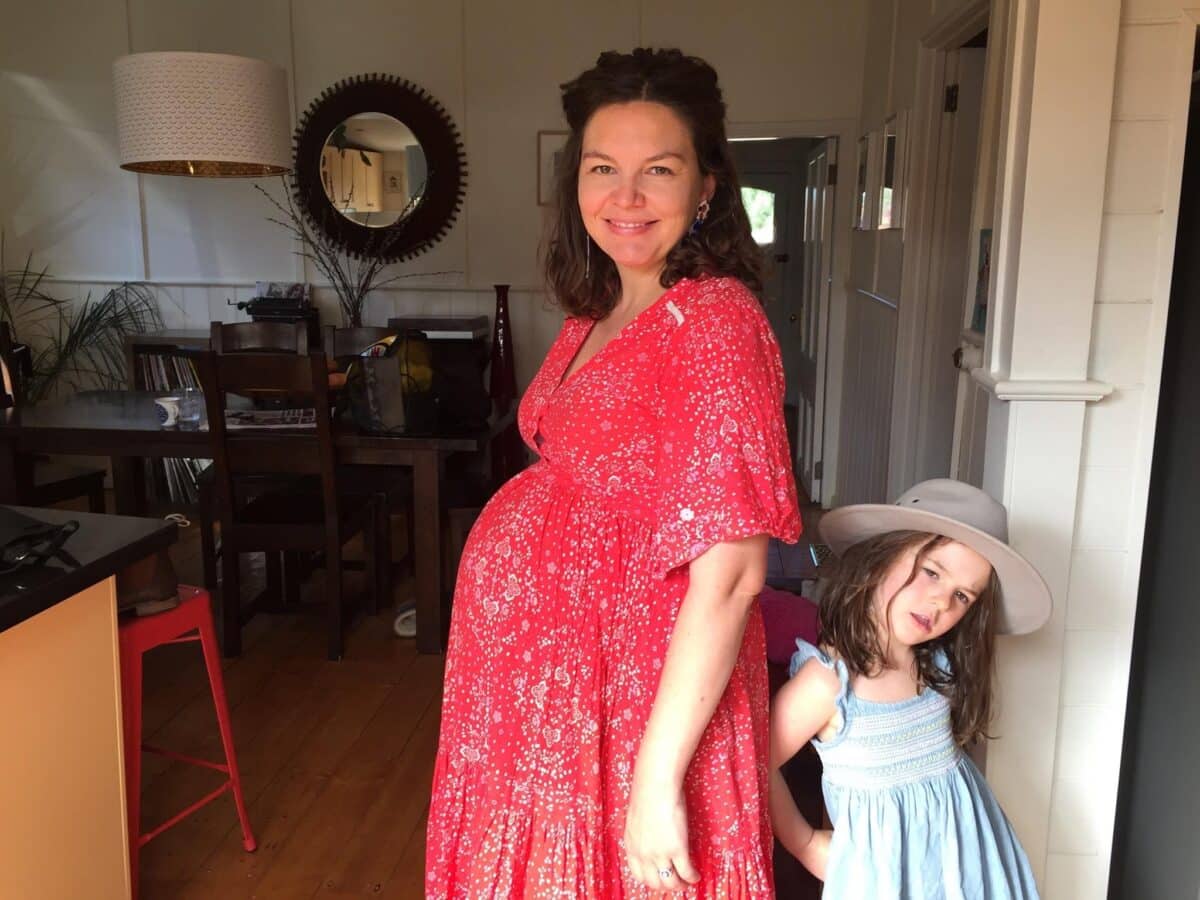
Topics Discussed
disability advocate, disabled parent, medical stigma, Postpartum, Two Babies
Episode Sponsor
Our friends at iL Tutto have launched their EOFY sale, with some amazing offers, up to 50% off a range of Glider Nursery Chairs and 20% off their signature Recliner styles. The sale also includes their range of award-winning CoZee Co-sleepers with up to 30% off! The exciting part is that they’re offering our audience an ADDITIONAL 5% off these discounted prices, using the code birth5 at checkout.
This discount code applies to everything online, including their widest range of Nursery Chairs, designed here in Australia, including Glider and Recliner chairs, even the hugely popular Electric Recliner Chairs, in a mix of premium, Standard 100 by OEKO-TEX® certified fabrics in an array of trending colours from white, to various shades of creams and greys, all of which are easy to clean and maintain, and most importantly, support your body for endless feeds and look amazing!
Shop now at iltutto.com.au their sale ends at 11:59pm Sunday 30 June, however our exclusive 5% off code (birth5) will continue on, expiring Monday 15 th July. See their terms and conditions page for more details.
Categories
Related Products
-
Birth Meditations
$49.00Narrated by Sophie Walker, these soothing and informative meditations help you feel supported and confident around birth.
Join the conversation
Sign up to get the latest updates, freebies, podcast releases straight into your inbox
@AustralianBirthStories
Follow along with us
@AustralianBirthStories
Follow along with us
@AustralianBirthStories
Follow along with us
@AustralianBirthStories
Follow along with us
@AustralianBirthStories
Follow along with us
@AustralianBirthStories
Follow along with us
@AustralianBirthStories
Follow along with us
@AustralianBirthStories
Follow along with us
@AustralianBirthStories
Follow along with us
@AustralianBirthStories
Follow along with us
@AustralianBirthStories
Follow along with us
@AustralianBirthStories
Follow along with us
